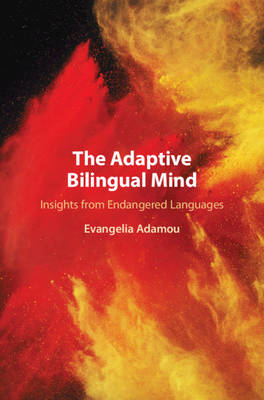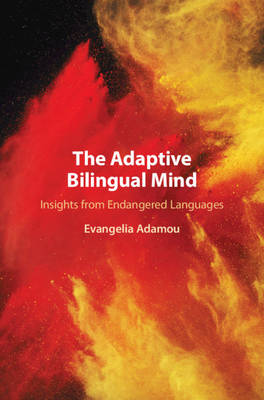
Door een staking bij bpost kan je online bestelling op dit moment iets langer onderweg zijn dan voorzien. Dringend iets nodig? Onze winkels ontvangen jou met open armen!
- Afhalen na 1 uur in een winkel met voorraad
- Gratis thuislevering in België vanaf € 30
- Ruim aanbod met 7 miljoen producten
Door een staking bij bpost kan je online bestelling op dit moment iets langer onderweg zijn dan voorzien. Dringend iets nodig? Onze winkels ontvangen jou met open armen!
- Afhalen na 1 uur in een winkel met voorraad
- Gratis thuislevering in België vanaf € 30
- Ruim aanbod met 7 miljoen producten
Zoeken
€ 187,45
+ 374 punten
Omschrijving
At present, much of the research on bilingual cognition focuses on late second language learners of a small number of languages. In this fascinating book, Evangelia Adamou widens the net by integrating advances in the field of bilingualism with the study of endangered languages. Drawing on recent studies from Europe and Latin America, she demonstrates that experimental psycholinguistic methods can be successfully applied outside the lab and, conversely, how data from these understudied populations provide new insights into the adaptive capacities of the bilingual mind. Adamou shows how bilinguals manage competing conceptualizations of time and space, how their grammars and language mixing patterns adapt to cognitive constraints such as the need for simplification, and how language processing concurrently adapts to their complex bilingual experience. Combining statistical analyses with detailed linguistic and ethnographic information, this essential book will appeal to scholars of bilingualism, cognitive sciences, language endangerment, and language contact.
Specificaties
Betrokkenen
- Auteur(s):
- Uitgeverij:
Inhoud
- Aantal bladzijden:
- 250
- Taal:
- Engels
Eigenschappen
- Productcode (EAN):
- 9781108839518
- Verschijningsdatum:
- 15/04/2021
- Uitvoering:
- Hardcover
- Formaat:
- Genaaid
- Afmetingen:
- 152 mm x 229 mm
- Gewicht:
- 462 g

Alleen bij Standaard Boekhandel
+ 374 punten op je klantenkaart van Standaard Boekhandel
Beoordelingen
We publiceren alleen reviews die voldoen aan de voorwaarden voor reviews. Bekijk onze voorwaarden voor reviews.











